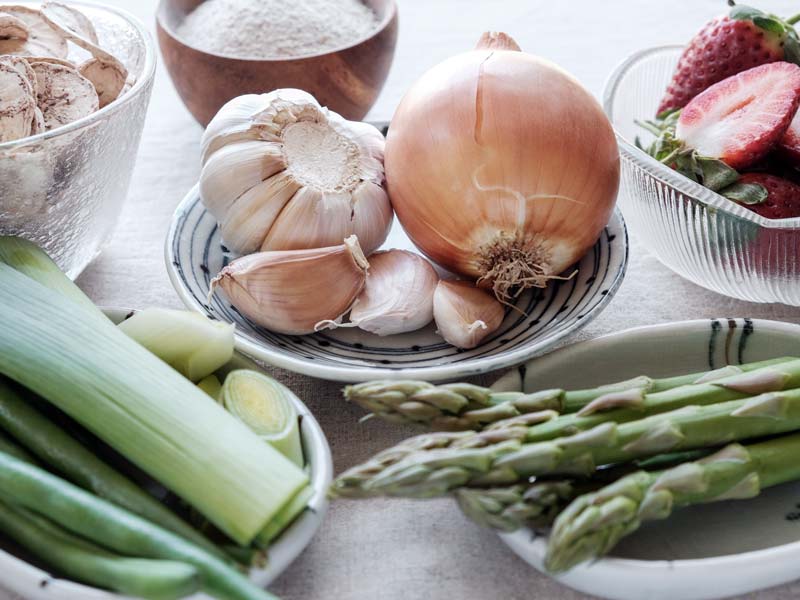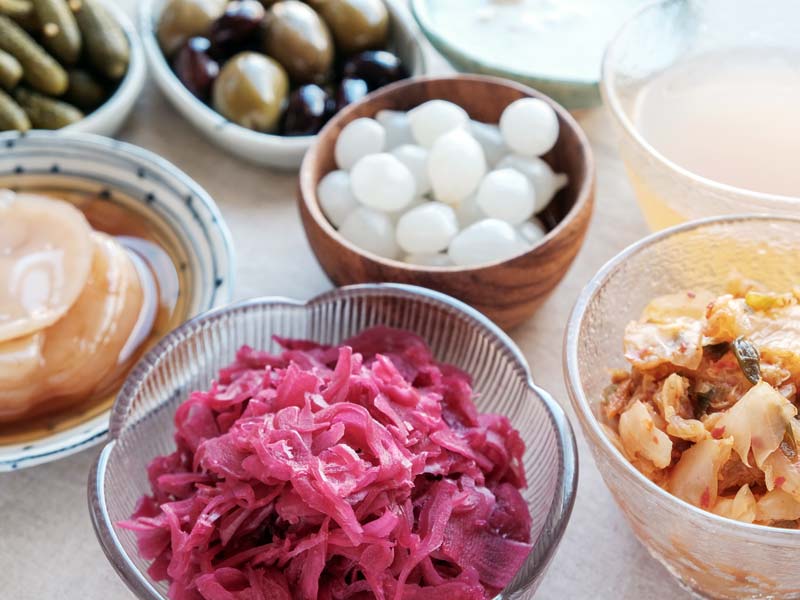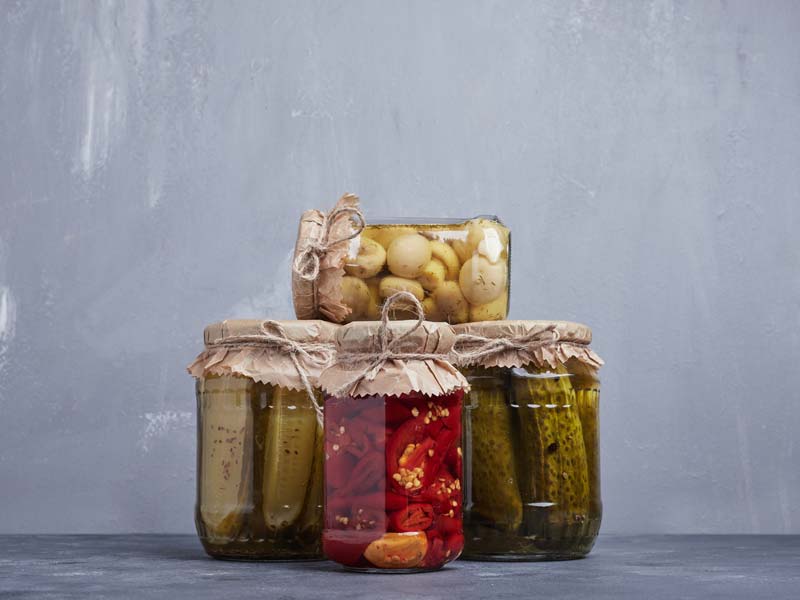The intestinal microbiota, a key element for our health that is largely unknown to most people.
Without a doubt, the term that was used in the past to refer to it will be more familiar to you: “intestinal flora”. The intestinal microbiota is made up of billions of bacteria found inside the digestive tract, and is unique for each individual, also evolving throughout life.
In this article we will learn more about the intestinal microbiota, which, as we mentioned, plays a decisive role in our health, and which is so important that it is currently considered as an organ of the human body.
En este artículo:
- Definition of microbiota
- What is the intestinal microbiota?
- Intestinal microbiota and health
- Functions of the intestinal microbiota for health
- Imbalance of the intestinal microbiota
- Related disorders
- What damages the intestinal microbiota?
- How to recover the intestinal flora
- Healthy diet and habits
- Importance of diet for the intestinal microbiota
- Acquire healthy habits for the intestinal microbiota
- Probiotics and prebiotics
- Foods that take care of your microbiota
- Healthy diet and habits
Definition of microbiota
The microbiota is scientifically defined as “the set of microorganisms present in a defined environment”, or according to the RAE as “Microscopic flora that resides in an organism”.
What is the intestinal microbiota?
As the microbiota varies according to the environment, the term “intestinal microbiota” is used to refer to that located in the intestine.
The intestinal microbiota is the set of microorganisms that evolve throughout the intestinal tract.
Intestinal microbiota and health
The balance of the intestinal microbiota is essential to maintain good health because, although many of the bacteria that we have in the body are beneficial, others are harmful.
Functions of the intestinal microbiota for health
90% of the billions of bacteria that we have in the body are found in the digestive system, and they fulfill three main functions:
- Allow a correct absorption of the ingested nutrients.
- Act as a protective barrier for the intestinal mucosa.
- Avoid infections.
Imbalance of the intestinal microbiota
The imbalance of the intestinal flora or microbiota is known as dysbiosis.
An altered microbiota will lead to a weaker immune system, increasing the risk of chronic diseases.

Related disorders
If the intestinal microbiota suffers an imbalance, we speak of dysbiosis. Its impact on health varies from a simple alteration to the disease and even to the temporary or permanent disappearance of the benefits it usually provides.
Intestinal dysbiosis generates metabolic disturbances, inflammation, immunosuppression, and accumulation of uremic toxins, which can lead to kidney failure related to a wide range of diseases: chronic kidney failure, acute kidney injury, hypertension, nephrolithiasis, immunoglobulin A nephropathy, all this affecting the homeostasis of our body.
Furthermore, there is a direct relationship between the quality of the intestinal microbiota and body weight or body mass index. Changes in its function or its composition can be the cause of obesity, as both are essential aspects in the modulation of energy metabolism. Although modifying diet and lifestyle are still the main treatment, we now know that pre and / or probiotic modulation of the microbiota is a good tool to combat obesity and associated metabolic disorders.
Those mentioned are just some examples of the importance of taking care of the intestinal microbiota to prevent a very wide list of pathologies and to be able to maintain a good quality of life. These are other types of disorders that are related to dysbiosis:
- Irritable bowel syndrome and other functional digestive disorders.
- Metabolic diseases.
- Chronic inflammatory diseases.
- Obesity.
- Infections.
- Allergies.
But that’s not all, recent clinical studies have also found a correlation between the quality of the microbiota and mental disorders such as depression. The communication of the microbiota-intestinal-brain (MIB) axis involves the endocrine, immune and neurotransmitter systems. Dysfunctions of these systems have been detected together with intestinal dysbiosis in clinically depressed patients, which implies a participation of the MGB axis in the pathophysiology of depression.
What damages the intestinal microbiota?
Although there are other factors that influence the intestinal microbiota, a diet high in consumption of ultra-processed foods, vegetable oils, refined flours and sugars, will lead to dysbiosis sooner or later.
But the imbalances of the intestinal microbiota, or the damage caused to it, are not always the consequence of a poor diet, or not exclusively. There are many other factors that can contribute to dysbiosis:
- Different types of stress (emotional, metabolic, etc.).
- Lack of sleep.
- The constant alteration of circadian rhythms.
- The sedentary lifestyle.
- Endocrine disruptors (accumulation in the body of heavy metals, plastics, pesticides and hydrocarbons).
- Consumption of certain medications. Although its consumption is sometimes unavoidable, for example, antibiotic treatment has been shown to alter the intestinal microbiota.
How to recover the intestinal flora
As we have seen, strengthening the health of our intestines is one of the most effective means of improving our quality of life and our general health.
This is why the term “intestinal health” has become increasingly popular in recent years. Good intestinal health is considered when: proper digestion and absorption of food are carried out, there are no gastrointestinal problems, and we have a balanced intestinal microbiota, a strong intestinal barrier, and an efficient immune system.
To achieve all this, it is essential to recover our intestinal flora and maintain a balanced microbiota. Let’s see below what measures we must take to be able to achieve this important objective.
Healthy diet and habits
There is a great influence of diet on the intestinal microbiota. Also environmental factors, such as lifestyle or drugs, are decisive for their quality, composition, quantity and proper functioning.
Importance of diet for the intestinal microbiota
The way we eat has a decisive influence on our intestine and the bacteria it houses, so a varied diet is our main weapon to keep it healthy. These are some tips to follow to maintain an optimal intestinal microbiota:
- Follow a varied and balanced diet rich in vegetables and fiber, with a low consumption of red meat.
- Combine probiotic and prebiotic foods and increase your intake.
- Avoid aggressive restrictive diets geared towards weight loss. When in doubt, the ideal is to consult a dietitian.
Acquire healthy habits for the intestinal microbiota
But as we have seen previously, it is not only diet that affects the intestinal microbiota. That is why we leave you a series of recommendations to keep it balanced, thus preventing a long list of pathologies:
- Exercise, and not only aerobic, but also strength.
- Maintain good sleep habits to get a quality rest.
- Carry out activities aimed at stress management.
- Maintain good hydration.

Physical exercise helps us eliminate accumulated waste in our body, internally cleaning our organs, muscles and lymphatic system.
It also improves blood circulation, including that of the intestines, allowing a greater supply of nutrients and an increase in intestinal function and motility.
In addition, thanks to muscle contraction and increased oxygen consumption, it induces beneficial changes in the profile of the intestinal microbiota. Improves intestinal bacterial biodiversity, and increases the presence of muconutritive bacteria, responsible for producing a protective layer that prevents the absorption of substances harmful to the body.
Regarding the stress that we can all suffer at certain times in our daily lives, it is not always possible to avoid it. But it is very important to avoid all kinds of chronic and prolonged stress. To do this, we must seek a balance between day-to-day obligations, the time dedicated to work activity and the moments dedicated to ourselves.
For proper stress management, it is important to find moments to relax, such as those we offer you at Slow Spa. In our spa in Barcelona you will find a cozy and comfortable wellness space in the middle of the bustle of the big city. You can enjoy relaxation and beauty treatments for your body and mind that will help you keep that current endemic evil that is stress at bay.

Finally, you will see that we have mentioned in the recommendations probiotic and prebiotic foods, which can greatly help us to maintain a healthy intestinal flora. Let’s get to know them better below.
Probiotics and prebiotics

Prebiotics are indigestible compounds, so they reach the colon intact and can be fermented by bacteria. This fermentation modifies the composition or activity of the intestinal microbiota, since it produces nutrients and beneficial substances such as butyric acid, which hinder the proliferation of bacteria that are harmful to the body and stimulate the activity or proliferation of beneficial bacteria.
Probiotics must meet several criteria to be effective:
- A perfect tolerance by the organism.
- Ability to resist gastric acidity and bile salts.
- Antimicrobial properties and stimulators of the immune system.
Prebiotics are found naturally in vegetables, fruits, whole grains, legumes, nuts, and seeds, which are fermented in the large intestine to improve health.
 Probiotics are live microorganisms that exert positive effects on health. Foods with probiotics, being fermented, are rich in these live microorganisms, mainly lactobacilli and bi-dobacteria, providing the body with beneficial bacteria for the intestinal microbiota.
Probiotics are live microorganisms that exert positive effects on health. Foods with probiotics, being fermented, are rich in these live microorganisms, mainly lactobacilli and bi-dobacteria, providing the body with beneficial bacteria for the intestinal microbiota.
The most common and well-known are fermented dairy such as yogurt or kefir, but there are many other fermented ones that are also probiotics, such as sauerkraut, miso, or kombucha tea.
It is important to consume these foods regularly and in sufficient quantity, since the beneficial bacteria or yeasts they provide have a limited duration in the intestinal microbiota, which ranges from a few days to approximately 3 weeks. All of them can improve your digestion, generate better communication between brain and intestine or stop the tendency to gain weight.
Foods that take care of your microbiota
As we have seen, prebiotics and probiotics therefore contribute to a correct balance of the intestinal microbiota, which strengthens your defenses and your health. We discover the most important ones in the following list, so that you can incorporate them into your diet and benefit from their virtues:
Onion, like garlic, artichoke heart, or spinach, are excellent prebiotic foods.
The onion contains up to 8% of prebiotic substances, such as inulin, all similar to vegetable fiber and that pass undigested to the intestine, serving as food for the good bacteria.
Originally from the French region of Alsace, it consists of fresh fermented cabbage leaves, and has great probiotic properties.
It is commonly used as an accompaniment to various dishes of meat origin, and its use has spread to multiple regions around the world.
Almost all sprouted vegetable, legume and spice seeds exert a certain probiotic effect (removing those of nightshades such as tomatoes, peppers, aubergines and potatoes, whose sprouts are toxic).
These sprouted grains must be eaten fresh and raw to maintain their properties, for example in salads.
Dairy product similar to liquid yogurt, fermented through the action of a set of yeasts (fungi) and bacteria (lactobacilli).
It is a dairy product similar to yogurt, but more liquid and with higher acidity. It is one of the most powerful probiotic foods, thanks to its fermentation by fungi and lactobacilli (yeasts and bacteria).
It is consumed as a drink, as a sauce or as part of a cold soup.
Korean traditional dish. Kimchi is a probiotic from the fermentation of Asian cabbage, and favors the production of lactic acid, beneficial for the intestinal flora. Currently there are varieties according to geographical areas of this dish, which add other vegetables such as pepper, cucumber, garlic, onion and certain spices.
With a somewhat spicy and salty flavor, it is used as an ingredient to flavor rice, noodles, stews or soups.
Apples are a source of direct human exposure to various bacterial communities. They constitute a prebiotic food due to their contribution of pectins and other quality fibers, which serve as food for the beneficial bacteria of the intestinal microbiota.
They also provide other elements beneficial to health, such as alkalizing organic acids, hypocholesterolemic tannins and flavonoids, vitamins A and C, potassium, boron and phosphorus.
Traditionally used to ferment bread in the making process, but today commercial chemical yeasts are used.
The sourdough is a culture of natural yeasts from foods such as cereals that provides probiotics to the intestinal flora. In addition, the bread made with this technique is more easily digestible.
Seasoning of Japanese origin that is made with soy alone or accompanied by barley or rice and sea salt fermented with the koji mushroom. Contains enzymes that aid digestion.
It is a flavoring used to flavor all kinds of broths, soups or stews, and it is used heated, but avoiding boiling because it loses its beneficial properties.
If it is made with soy substrate colonized with fungi from wheat, through slow fermentation and without pasteurization, it is a great probiotic that helps to balance the microbiota.
Ancestral drink of Chinese culture. It is a tea undergoing fermentation with a symbiosis of bacteria and yeasts called scoby.
It has a taste similar to apple cider vinegar and a great probiotic action.
Tempeh is a soy-derived cake native to Indonesia, and it’s another great probiotic. It is made with soy fermented using a fungus called Rhizopus Oligosporus, which provides easy digestion and good nutritional content.
This derivative of soy is consumed cooked, whether fried, roasted, or in stews, and is also part of the gastronomy of other countries in Southeast Asia.
Umeboshi is a pickle of a salted and fermented Japanese plum variety. It is a very popular accompaniment in Japan, with an intense and acid flavor, which has a great probiotic action.
Yogurt is a dairy product obtained by fermenting milk by bacteria of the Lactobacillus and Streptococcus genera of various strains.
It is undoubtedly the best known and most consumed probiotic in the West.

Finally, we will clarify a frequent confusion regarding other very typical foods of Spanish gastronomy that, although they may be probiotics, this depends on the method used for their conservation. This is the case of olives or pickles, foods to which recent studies attribute probiotic potential, but which have generated some confusion.
This is so because it has been detected that they present a lactic bacteria native to the fermentation process. However, this is only present if they have been fermented in brine in water and salt, and this is not the case with most of the pickled vegetables sold in the supermarket, such as olives or pickles, which have been pickled. so they do not contain these microorganisms beneficial to health.
Pickles are vegetables that are preserved in an acidic medium, consisting of vinegar, water and salt. Vinegar acts as a preservative, but it is too acidic, and bacteria cannot survive such acidity.



